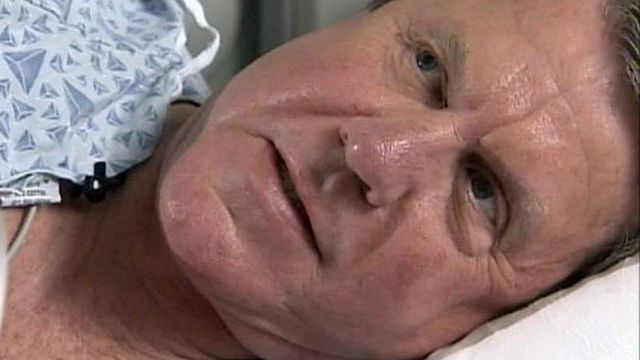Duke: Everyday stress can damage heart
Cardiologists and psychiatrists at Duke University have created a unique test for individuals to determine whether their hearts are at risk because of high stress levels.
Posted — UpdatedPhysicians are concerned about the growing stress in everyday life, and cardiologists and psychiatrists at Duke University have created a unique test for individuals to determine whether their hearts are at risk because of the stress.
Unlike the treadmill tests cardiologists have used for years to test the health of a heart, the Duke test pushes patients into stressful situations and monitors changes in their bodies, such as blood pressure. Stress can constrict blood vessels to and from the heart, damaging the organ, said Dr. Chris O'Connor, director of the Duke Heart Center.
"We've seen it as clinicians (and) all doctors can describe a case of a patient who was under enormous stress and subsequently suffered a heart attack," O'Connor said.
Dr. Wei Jiang, a psychiatrist and cardiologist at Duke, said prolonged stress can be worse for someone's heart than a lack of exercise.
"How people perceive stress and how people experience how much they are stressed out is very different," Jiang said.
O'Connor and Jiang helped develop Duke's mental stress test and have focused their studies on patients with a history of heart disease, such as Alan Sykes.
"My father died prematurely of heart disease. I developed heart disease and had a triple-bypass at 41 and, 10 years after that, my brother developed heart disease and had a triple-bypass," said Sykes, 61, a former corporate chief executive.
"During the test, I was laughing. I felt very relaxed – no stress at all," he said, adding that his test results showed he was under stress.
WRAL News anchor David Crabtree decided to try Duke's mental stress test himself. Although an ultrasound showed that his heart appears to be working properly, he noted that he has a stressful job and a family history of heart disease.
Crabtree was hooked up to an electrocardiogram and a blood pressure monitor and was asked to relax for six minutes.
Dr. Jennifer Wilson, a psychiatric resident at Duke, began the test by asking Crabtree to count backwards from 400 in increments of seven as fast as possible for three minutes. Whenever he would slow down, she would push him to go faster.
Wilson then asked Crabtree a series of questions before allowing him to relax for three minutes.
Then, he had to use his right hand – he's left-handed – to trace the reflection of a star he could see in a mirror. Wilson asked him to trace the star 30 times in three minutes, but Crabtree could do it only twice.
Although Crabtree said he felt relaxed, physicians noted his face turned red during the experiment.
Finally, Wilson asked Crabtree to give a three-minute impromptu speech of a time when he was very angry.
"I think I handled it very well," he said at the conclusion of the test.
Wilson noted, however, that his blood pressure shot up to 173 over 130 during the test. A healthy blood pressure is about 120 over 80.
O'Connor said such spikes in blood pressure from daily stress could damage a person's heart. He and Jiang recommended that people be vigilant about stressful situations they encounter.
"What may be stressful for one person is not for another," O'Connor said.
Jiang said people should try to take a break to get away from stress or, if they can't physically leave at a stressful time, to use mental exercises to relax and relieve mental stress.
Anyone wishing to take part in the Duke study and undergo the mental stress test can call Wilson at 919-681-4367.
• Credits
Copyright 2024 by Capitol Broadcasting Company. All rights reserved. This material may not be published, broadcast, rewritten or redistributed.





